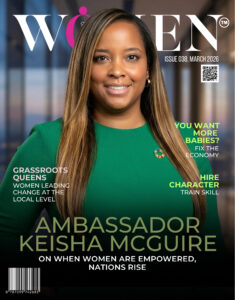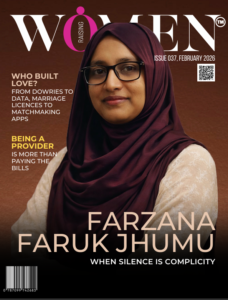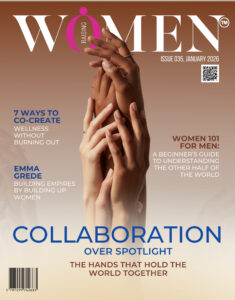The Never-Ending Battle for Peace
By Daniel Agusi
In today’s fast-paced world, the battle that many men face is fought not on visible frontlines, but within the confines of societal expectations and deeply ingrained notions of masculinity. Often, men are expected to be unflinching pillars of strength, stoic, reliable, and above all, invulnerable. Yet, beneath this façade lies a tumultuous inner landscape where countless thoughts, fears, and emotions collide. For many, speaking openly about these internal conflicts is met with judgment rather than understanding.
From an early age, boys are taught that vulnerability is a weakness, and that true manhood means suppressing emotions. The pressure to embody an ideal and be self-sufficient creates a paradox: the stronger a man appears, the more isolated he can feel. He is expected to shoulder burdens silently, whether it be the financial responsibilities that weigh heavily on his shoulders or the personal struggles that gnaw away at his peace of mind.
Consider the financial expectations placed upon men. Society often paints them as the primary providers, turning them into living embodiments of economic stability. When a man is seen as capable, these expectations may seem reasonable. However, the pressure intensifies when he faces challenges, be it unemployment, financial hardship, or personal setbacks. Instead of receiving support or empathy, he is often met with criticism or an unspoken assumption that he is not fulfilling his “role.” This relentless demand to be both the provider and the protector leaves little room for vulnerability. Admitting to financial difficulties or emotional distress is frequently misconstrued as a failure of character and a sign of weakness incompatible with his role as a man.
The metaphor of “Men at War” captures this internal conflict perfectly. Every day, countless men engage in an unending battle for peace and a struggle to reconcile the demands of society with their own emotional realities. This war is fought on multiple fronts: the battlefield of personal relationships, the workplace, and even within their own minds. Each confrontation leaves its scars, often hidden from view, as the enemy is not a tangible foe but the expectations that have been ingrained over decades.
When a man speaks of seeking peace of mind, he is not merely expressing a desire for calmness. He is making a declaration of defiance against the rigid constructs of masculinity that dictate he must always be composed, regardless of the chaos brewing beneath the surface. His call for peace is a call for authenticity and a plea to be seen as more than just a stereotype of strength.
It is an invitation for society to acknowledge that the struggle for emotional well-being is not a gendered weakness, but a human one.
The conversation must move away from the binary of strong versus weak and evolve into something better where vulnerability is seen as a facet of strength, not its antithesis.
The war for peace within is ongoing and relentless, yet each step towards emotional honesty is a victory. When we create a culture where men can speak freely about their challenges, we pave the way for a more empathetic, resilient society where the burdens of expectation are shared, and the quest for inner peace is celebrated as a universal right.
In a world that often champions the image of the unbreakable man, there is an urgent need for a shift in perspective. Men should be allowed the space to discuss their fears, to reveal their insecurities, and to seek help without the burden of shame. Just as a soldier in the midst of battle might lower his guard to tend to a wound, so too should men feel free to address the emotional injuries that accrue over a lifetime of silence.
This conversation is particularly crucial in spaces where women traditionally hold sway. Women’s magazines, for instance, have long been celebrated for their nuanced exploration of human emotion and vulnerability. By including the perspective of men and highlighting the inner wars that so many silently wage, we enrich the dialogue about gender, human experience, and the universal quest for inner peace. It is not an act of dilution, but one of inclusion: recognizing that the quest for emotional balance is a shared journey, irrespective of gender.
In reimagining masculinity, we must embrace a more in-depth view which is one that celebrates strength not just in terms of stoicism, but also in the courage it takes to be open and authentic. Every man who dares to express his inner struggles is, in essence, an unsung hero battling against a tide of outdated expectations.







